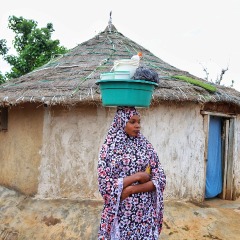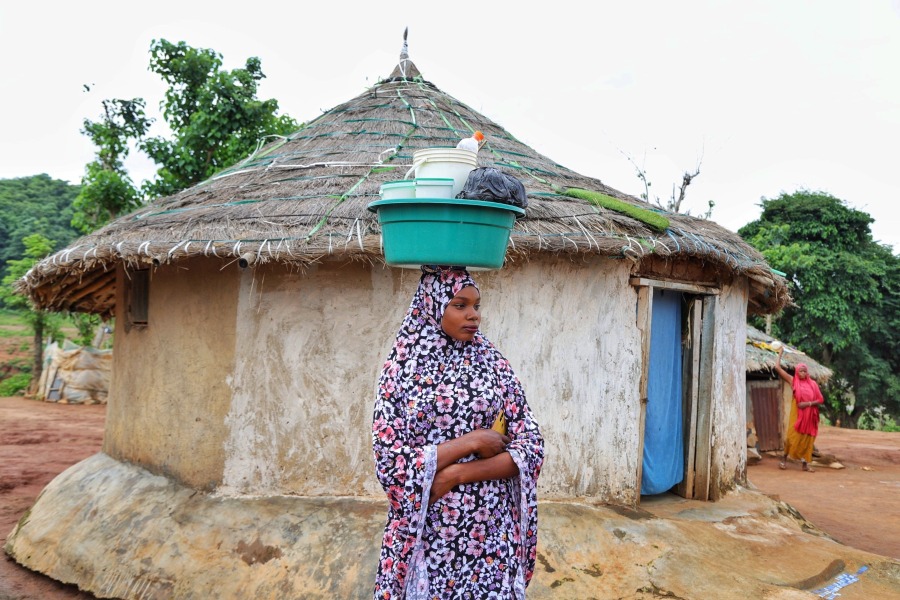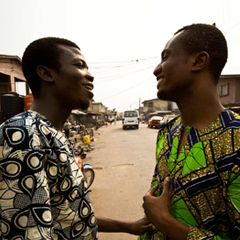
“Gender equality today for a sustainable tomorrow.” The 2022 International Women’s Day theme affirms MacArthur’s On Nigeria program’s commitment to Gender Equality and Social Inclusion (GESI).
Lived realities tell us that people are not homogenous in nature: they are made up of different energies and experiences, all defined by a person's proximity to power, resources, and opportunities. Far outside that circle are women, young people, people with disabilities, the poor, and individuals and communities on the margins of cities who feel the brunt of bad governance. These groups make up over 70 percent of our population in Nigeria.

A Fulani milkmaid setting out for the market in Katampe, Abuja. Photo by Segun Ogunleye.
Only one in four girls is likely to finish a course of schooling. One in every three girls and women will have experienced gender-based violence before turning 25-years-old, according to NOIPolls. This has import for society’s well-being, especially where women subsidize the state when services fail due to corruption.
Women and their children find the water, the wood for energy, and care for the sick, while also engaging in income-earning activities. Casting light on the plight of women and girls preserves the quality and dignity of human life, as does nurturing boys into confident men who respect women. These further underscore On Nigeria’s concern for GESI.
We come to this work with humility, for it is important to acknowledge the privileges and power that come with it. We stay mindful of the intersections that define a multiplicity of identities as we continue to ask the questions: What knowledge gaps do we need to fill? How do we amplify the voices of traditionally marginalized individuals and communities? How do gender, class, ethnicity, religion, age, language, and ability interact in Nigeria to make the expperience of corruption different for some groups of people? What changes do we need to make to ensure that our strategy and all the projects we support are designed such that people who have been historically excluded from the conversation are included and heard? How do we enable equitable opportunity without doing harm in our context?
It is an honor to see the positive effect our work has on people’s lives. We see it when grantee organizations demonstrate the cost of corruption on women and their families and demand their full participation in public life. And when the original inhabitants of Abuja say, “No development partner has ever invested in our well-being at this scale.” When a child beams a smile in anticipation of a cooked meal in school. When the Independent National Electoral Commission revises its gender policy and establishes a gender and inclusion department. And when a media report galvanizes action leading to the construction of a community road and free maternal care services for women. We celebrate and embrace these moments but remain rooted. We continue to learn more, do more, and give more.
Happy International Women’s Day.



